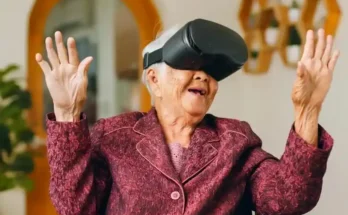The Heartbeat of Modern Culture:
Entertainment is more than just a distraction or a way to pass time. It’s a mirror reflecting our deepest fears, wildest dreams, and evolving values. Whether it’s a blockbuster film, a gripping Netflix series, a viral TikTok video, or a sold-out concert, entertainment is the language we use to escape, engage, and understand the world around us.
In today’s hyper-connected society, entertainment plays a central role—not only in how we relax but in how we think, interact, and even shape identity. The lines between reality and fantasy blur more each day, and entertainment has evolved into something far more significant than it once was. It’s no longer just about watching a show—it’s about being part of the story.
The Evolution of Entertainment:
-
From Firelight Stories to Streaming Platforms
Long before screens and stages, humans gathered around fires, telling tales that carried meaning, morality, and imagination. Those early forms of storytelling laid the groundwork for all the entertainment we know today. Fast forward thousands of years, and we’ve gone from Shakespearean theatre to virtual concerts, from radio dramas to immersive augmented reality.
Each leap in technology redefines the way we entertain ourselves. The printing press gave birth to mass literature. Radio brought voices into living rooms. Television gave stories a face. The internet brought them to life in ways we never imagined. And now, streaming platforms and digital creators bring on-demand entertainment into our pockets 24/7.
Entertainment has always evolved with its audience—and today, it evolves with breathtaking speed.
-
The Rise of Interactive Entertainment
In the past, audiences consumed entertainment passively. But modern entertainment is increasingly interactive. Video games, virtual reality experiences, social media challenges—these aren’t just things people watch. They’re things people do.
The line between creator and consumer is disappearing. Audiences are no longer spectators—they’re collaborators. Fan theories shape plotlines, social media feedback influences programming, and fan-created content can be as influential as the original. This shift empowers people to not just observe culture, but to participate in creating it.
Entertainment as Emotional Catharsis:
-
Storytelling That Heals and Provokes
Great entertainment does more than entertain. It moves us. It helps us process grief, find joy, or understand experiences outside our own. Think of the sobering impact of a documentary that uncovers injustice, the catharsis of a heart-wrenching drama, or the liberation of a laugh-out-loud comedy.
Movies, shows, songs, and books don’t just tell stories—they evoke emotion, provoke thought, and sometimes even inspire change. Art imitates life, but it also teaches us how to live it.
A well-told story can connect with someone on the other side of the world. It can change hearts. In some cases, it can even change policy. That’s the true power of entertainment—it doesn’t just reflect society, it shapes it.
-
Escape from Reality
Entertainment has always offered an escape. But in recent years, audiences have demanded more realism, diversity, and relevance in the stories they consume. We want superheroes, yes—but ones with real flaws and emotional depth. We want romances that mirror today’s complex relationships. We want villains who are more than just evil for the sake of it.
In this way, entertainment has evolved from pure escapism into a space for social conversation. Through fictional universes, we confront real-world issues—mental health, racism, inequality, climate change. The best entertainment doesn’t just transport us away from the world. It returns us to it more informed, more empathetic, and more inspired.
The Digital Era:
-
The Rise of the Content Creator
Hollywood stars and Grammy-winning musicians no longer have a monopoly on fame. Today, a teenager with a phone and a ring light can reach millions. Platforms like YouTube, TikTok, and Instagram have democratized entertainment, allowing everyday people to build massive followings and create content that rivals mainstream productions.
The content creator economy has exploded, driven by authenticity and niche appeal. Audiences are increasingly drawn to relatable personalities over polished celebrities. It’s not just about perfection—it’s about connection.
These new-age entertainers often blur the lines between influencer, performer, and entrepreneur. They control their own brands, interact with fans directly, and build communities rather than just followings.
-
Algorithms and Attention
In the digital age, entertainment doesn’t find you—you find it. Or rather, it finds you, thanks to algorithms designed to keep you engaged. From Netflix’s recommendations to TikTok’s For You Page, entertainment is now personalized and endless.
While this creates an abundance of choice, it also creates a battle for attention. Content is shorter, faster, and more competitive than ever. In this high-speed environment, trends come and go in days. Yet some stories still rise above the noise and captivate millions.
Entertainment’s Role in Social Movements:
-
Art as Activism
Throughout history, entertainment has been a powerful vehicle for activism. From protest songs in the ’60s to socially conscious rap in the 2000s, artists have used their platforms to speak truth to power.
Today’s entertainers are more vocal and visible than ever. Films shed light on underrepresented communities. TV shows challenge stereotypes. Comedians address political issues with satire. Musicians tackle topics like mental health, gender identity, and climate change in their lyrics.
Entertainment doesn’t just mirror society—it challenges it, critiques it, and sometimes even transforms it. Art becomes action, laughter becomes liberation, and lyrics become battle cries.
-
Building Communities Through Shared Stories
Entertainment also brings people together. Fandoms form around favorite franchises. Concerts unite strangers through sound. Online forums buzz with episode breakdowns and Easter egg theories. In a divided world, shared stories create a sense of belonging.
Whether it’s joining a global movement sparked by a documentary or bonding with a stranger over a niche web series, entertainment has the power to unite us. It reminds us that, no matter how different our lives may be, we laugh, cry, and feel for the same stories.
The Future of Entertainment:
-
Immersive Experiences and AI
Looking ahead, the future of entertainment is immersive. Virtual concerts, AI-generated content, interactive films—these are only the beginning. We’re entering a world where you don’t just watch the story. You live it.
Augmented reality will make your surroundings part of the show. AI will create music based on your mood. Games will adapt to your behavior in real-time. The future isn’t about passive consumption. It’s about deep, personal involvement.
But as technology opens new doors, it also raises ethical questions. How much control should algorithms have? Can AI truly replace human creativity? What happens to privacy when entertainment becomes indistinguishable from life?
-
Human Connection in a High-Tech World
Despite all this advancement, the core of entertainment will remain the same: connection. Stories told around the fire are still stories told on the screen. The tools may change, but the need to feel, share, and belong remains eternal.
No matter how far we go technologically, the best entertainment will always be that which understands what it means to be human.
Conclusion:
Entertainment is not just what we do in our free time. It’s how we make sense of the world. It influences the way we dress, the way we speak, the way we see each other. It makes us laugh when we need relief, cry when we need release, and think when we need reflection.
In a world moving faster than ever, entertainment slows us down just enough to connect—both with ourselves and with others. It’s an art, a business, a revolution, and a reflection. But above all, it’s a reminder that stories—no matter the medium—will always matter.
And in this new era, we’re not just watching stories. We’re becoming a part of them.




